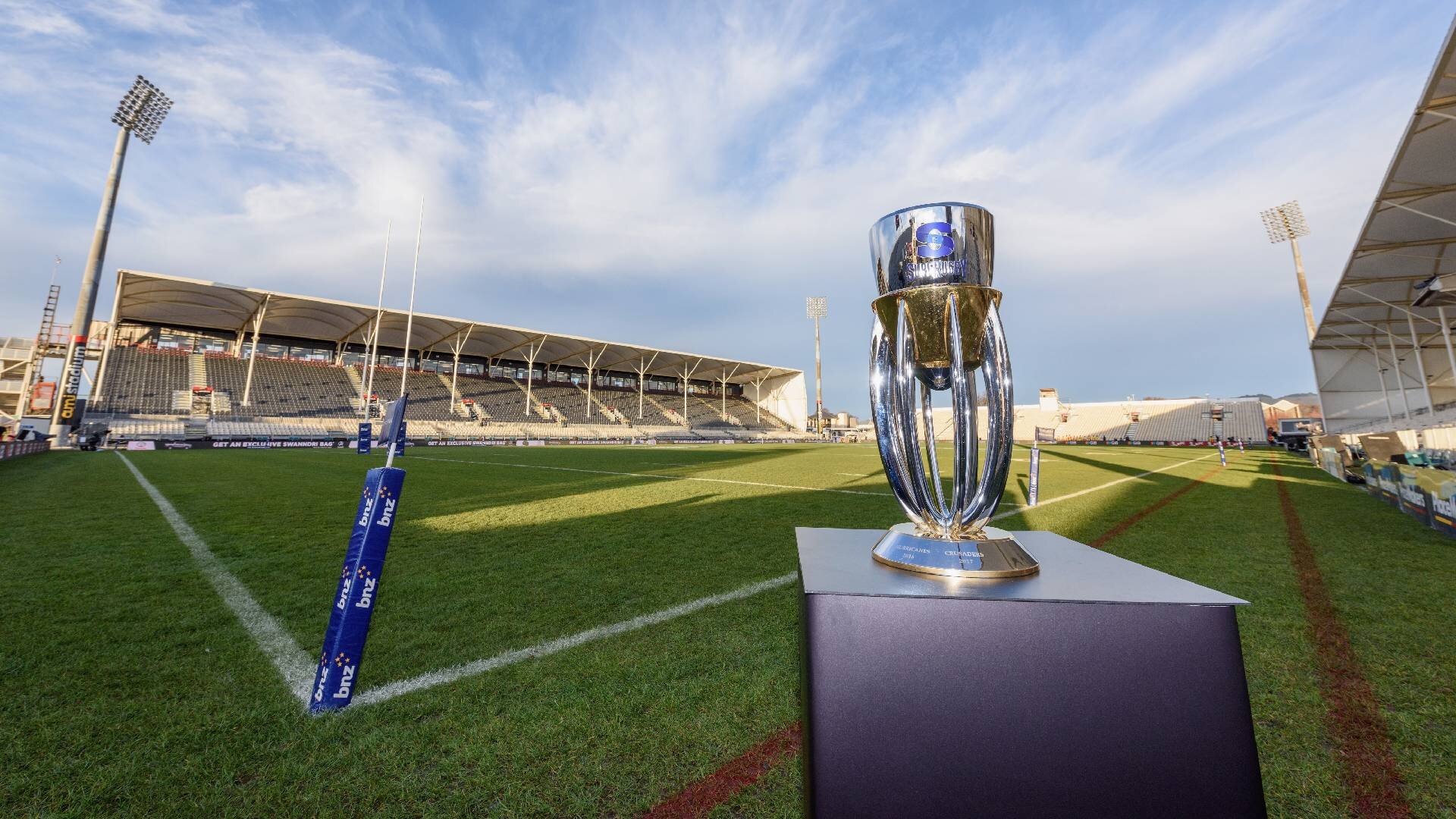SANZAAR distance themselves from 'speculation' surrounding major changes to Super Rugby format

SANZAAR have moved to shut down speculation surrounding major changes to the structure of Super Rugby.
It has been widely reported that SANZAAR bosses were considering a new Trans-Tasman tournament between the New Zealand and Australian teams, shutting South Africa rugby out of the competition.
Speculation intensified over the weekend, which has resulted in SANZAAR releasing a statement in order to “publicly correct the misleading information” regarding the future of Super Rugby.
However, the statement stopped short of ruling out temporary change to Super Rugby as a result of the COVID-19 pandemic.
Super Rugby is set to ditch the current conference format in favour of a 14-team round robin tournament from next season, but there is still much uncertainty regarding the future of the tournament beyond that.
In a statement, SANZAAR confirmed that broadcasters have already been sold a 14-team Super Rugby cross-border tournament, but admitted changes could be introduced to that format as a result of COVID-19.
SANZAAR also confirmed that the knock-on effect of COVID-19 could result in “a strong domestic focus” when Super Rugby eventually returns.
“SANZAAR would like to publicly correct the misleading information and speculation regarding suggestions in various media articles over the weekend about the future structure of SANZAAR and indeed tournament formats for Super Rugby,” a SANZAAR statement read.
“Whilst it is acknowledged that the impact of COVID-19 has presently brought unprecedented change to the world of rugby as we have known it, any changes to the Super Rugby structure this year and into the future are matters that are currently being discussed in detail by all the joint-venture, national union stakeholders: Argentina, Australia, New Zealand and South Africa.
“The stakeholders are all committed to the joint-venture through to 2030 and once consensus is agreed upon by all the stakeholders it will then be communicated by the SANZAAR Board.
“With respect to 2020, it is likely that once the green light is given to commence the playing of rugby matches in the various stakeholder territories, that a revised Super Rugby competition format will be implemented.
“In all likelihood, this will mean a strong domestic focus in each territory given the travel, border and government restrictions that we believe we will have to adhere to. SANZAAR will in due course make the appropriate announcements on the restart of rugby matches.
New Zealand Rugby chairman Brent Impey fears for the future of southern hemisphere rugby.https://t.co/L3NSuJRV35
— RugbyPass (@RugbyPass) May 4, 2020
“As to the future competition structures in 2021 and beyond, SANZAAR has already sold to broadcasters a 14-team Super Rugby cross-border tournament format as well as the four-team Rugby Championship, within the stakeholder core markets.
“Again where any changes to these competitions is required, as a consequence of any ongoing affects of the COVID-19 pandemic, these will be decided upon by the SANZAAR board.”
“Having spoken with my SANZAAR Board members I can confirm that none of the suggested models or structures that have been commented on recently, such as stand-alone Trans-Tasman formats, have been agreed by any of the SANZAAR unions individually or collectively,” SANZAAR CEO, Andy Marinos, added.
“All such reports are merely speculative and have no basis to them.”
“This is not to say that we are not having realistic discussions on what may have to eventuate should COVID-19 restrictions continue beyond 2020.
“We are presently looking in detail at various competition formats but any agreed format will include teams from all four stakeholder national unions. Due to uncertainty over what various government restrictions, if any, may look like next year including international travel, no date has been set yet as to when a decision will be made on 2021 and beyond.
“A major consideration is that we also have an obligation to discuss any contingencies with our broadcaster partners in the first instance after which we will make public comment.”
























































